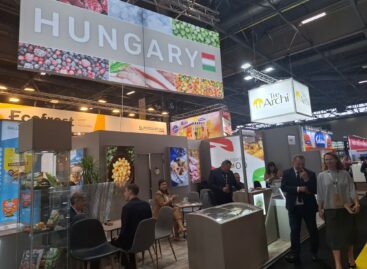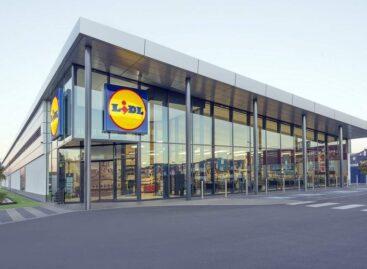Cast your watchful eyes on Paris
If it is autumn, it is SIAL and Paris. When I think of Paris, several food regulations come to my mind from the last few years, as French legislators submitted quite a few tricky proposals to decision-makers in Brussels in the past few years.
Mandatory indication of the place of origin

Guest writer:
Réka Szöllősi
food policy consultant
elelmiszervilag.hu
Because of the proposed changes in the food regulations, it is quite probable that a few years from now it will be mandatory to indicate the place of origin for minimum the dairy and meat components on food products made in the European Union. About 10 years ago this would have been totally impossible. Then in 2017 came a new French law, which made this obligatory for food products made in France. Although this rule didn’t apply to imported foods, it was French food companies that profited from the new situation: indicating the place of origin made it easier for shoppers to find those French products in shops that are made from French ingredients.

Ultra-processed food recently represent a serious policy issue
Creating the Nutri-Score concept and trademark
The idea of the Nutri-Score system was also born in France. At first it wasn’t popular at all in other EU countries, but today this front-of-pack (FOP) nutrition labelling system is used in 10 member states and by several of the biggest market players in the food industry and grocery retail. It was also upon a French initiative that the European Union recently banned titanium dioxide in food products. This was another measure that food companies didn’t actually welcome, but soon several other countries adopted the new rule. This case is also a good example of how a food additive, considered to be safe and used for decades, can turn into a villain basically overnight, and not because of scientists but a single EU member state.
Limiting the nitrite content of processed meats
There has been another controversial proposal in France: banning the use of nitrites in processed meats. This July the French Agency for Food, Environmental, Occupational Health and Safety (ANSES) published a statement, according to which it can’t be proven that certain types of cancer occur because of nitrite intake, but research results on the topic must be monitored closely, and steps must be taken to limit the exposure of consumers to nitrite. More than 50% of nitrite intake comes from eating processed meat products. ANSES recommended it to meat processing companies to reduce nitrite use “reasonably”, while their message to consumers was to maximise their weekly processed meat consumption in 150g, and at the same time to eat more fruit and vegetables.

By placing the Eco-Score label on the pack eco footprint of the production of different food categories can be compared
Introducing the Eco-Score concept
Last but not least a sustainability issue: a group of French companies has proposed the introduction of a system called Eco-Score, for calculating the environmental footprint of food products and communicating it to consumers. This would be based on France’s big state database containing the environmental footprint of 2,500 food categories. Since the birth of this initiative a similar idea has emerged in the United Kingdom too, and the EU’s Farm 2 Fork strategy also plans to do something in this field. //
This article is availab for reading in Trade magazin 2022.12-01.
Related news
Hungarian products were also selected among the most innovative at SIAL Paris
Fish chips made from domestic fish with extra protein content,…
Read more >Lidl Spain To Implement Nutri-Score On All Products by 2026
Lidl Spain is reinforcing its commitment to consumer health by…
Read more >Related news
Most major grocery chains will keep their stores open until noon on December 24th
Most of the large grocery chains will keep their stores…
Read more >Recognition of Consumer Protection Excellence: Honoring the Best of 2024
This year’s outstanding consumer protection officers and special award recipients…
Read more >The Joy of Giving! – SPAR stores collect non-perishable food for people in need
The Hungarian Maltese Charity Service and SPAR Hungary have launched…
Read more >








